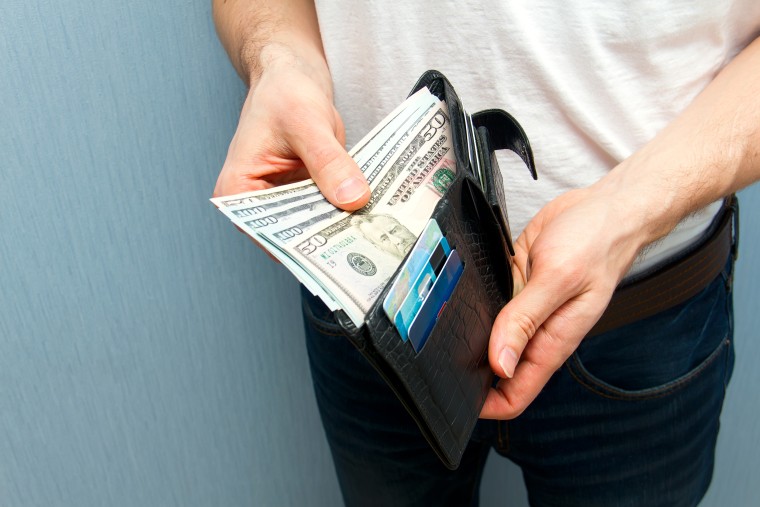This year marks the third tax season during which my boyfriend, Peter, and I have been together. (The most romantic means of measuring time, to be sure.) I’ve been working as a freelancer for several years, making my tax payments each quarter so that I have nothing to worry about come April 15th. I’ve long been used to the fact that I get to sit idly by while I see my friends and peers excitedly cash in their refund checks, or anxiously check their bank balances until that anticipated 4-figure direct deposit hits. Some of them immediately put the influx of cash towards their debt, while others use it every year, without fail, to pay for a vacation in the summer. Regardless of what they end up using it towards, they’re always thrilled to have a little extra cash outside what they usually budget for.
Peter, however, is a different story. Each tax season that I’ve known him, he seems to get more and more aggravated at the thought of getting a refund. He knows that he ostensibly filled out his tax forms correctly at work, claiming the right number of exemptions so that he would owe nothing by the time Tax Day rolled around, and also so as to have the smallest refund possible.
The economic reality is that a large refund is essentially an interest-free loan to the IRS.
At first, I found this pretty confusing — who wouldn’t want to get a tax refund every April, especially one that means lining your pockets with a few thousand dollars extra that month? So I reached out to Grace Taylor, an enrolled agent who works with American expats on tax issues, to get more information.
“The economic reality is that a large refund is essentially an interest-free loan to the IRS, she explained. “If you have high-interest debt, or if you can otherwise make better use of that money throughout the year, you might reasonably claim more allowances, and plan to have either a very small refund, or a very small balance due.”
“Interest-free loan” is a term Peter has also thrown out when we’ve discussed taxes. Basically, it means that, by not claiming exemptions on your W-4, the government withholds more of your money throughout the year. And when you get your refund check, you only receive the amount that’s been withheld — nothing more. Even though you’ve been lending the government that money to use throughout the year, you won’t earn interest the way a lending institution would.
Taylor also clarified what it means to claim exemptions — a process many American taxpayers are confused by. “Claiming more exemptions (also called allowances) on your W-4 reduces your withholding throughout the year, so you're less likely to get a refund at tax time. It's something I often see people confuse, as it's perhaps a bit counterintuitive. Of course, tax time is too late to do anything about your W-4 for the previous year; you can only adjust it for the rest of the current year/going forward.”
Exemptions can be made in such cases as having dependents in your household, not being anyone’s dependent, or for certain types of organizations that qualify for tax-exempt status from the IRS. The more exemptions you claim, the less tax is taken out of each paycheck. This means that you’re less likely to get a refund, but you have access to that money that’s yours every time you get a paycheck — not just at tax time.
We aren't rational about our money, and most people will do something more productive with that cash if they get it in one lump sum than if they get a few extra bucks each month.
Taylor offered a word of caution, however. “Don't go too crazy with the allowances, because if your balance due at tax time is too high (if you owe more than $1,000 and if your withholding isn't at least 90% of the current year tax, or 100% of the prior year tax), you will owe underpayment penalties.” So if you want access to more of your money throughout the year, claim some exemptions, but make sure they are the right ones. You don’t want to claim too many and then end up owing money to the IRS come tax season.
Of course, even among tax professionals, not everyone agrees that claiming more exemptions is necessarily the right move. Brittney Knies, a CPA and personal finance blogger, actually claims zero exemptions to ensure she does get a refund. "In a rational world, yes, getting the money in your pocket every month is the right move,” she said. “But here's the thing: we aren't rational about our money, and most people will do something more productive with that cash (i.e. applying it to savings or paying down debt) if they get it in one lump sum than if they get a few extra bucks each month. It's psychology, not numbers, which is why I claim less exemptions on my W-4 to get more back during tax season when I'll make better use of it."
In the end, Taylor agreed that it all comes down to personal preference — and knowing your own weaknesses when it comes to managing your money. “The central point of whether it's better to have a refund or not comes down to how people manage their money. For someone who's going to spend all of their paycheck regardless of the amount, I would say that person should claim fewer allowances on their W-4, and plan to have a refund at tax time.”
Whether or not you decide to claim more exemptions on your W-4 so that, come tax season 2018, you’ll receive less of a refund, it pays to know exactly where your money is going.



